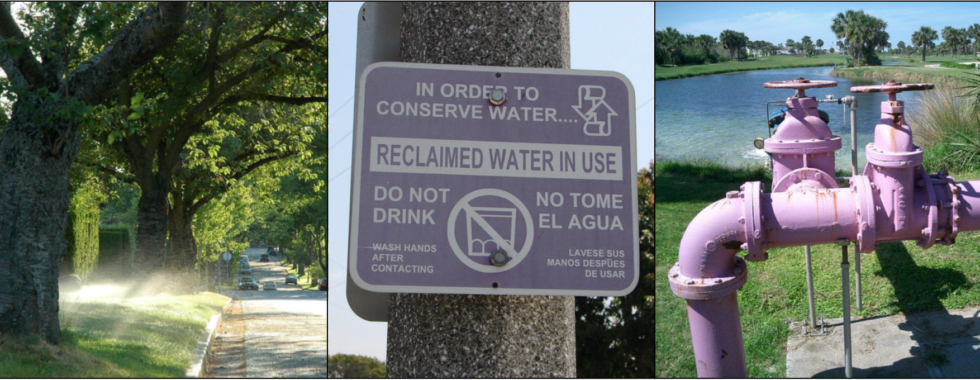UF Water Scholars Program
2024 Cohort
BREWS: Beneficial Reuse of Wastewater and solids: Overcoming Barriers and Identifying Opportunities

Our Purpose: We are an interdisciplinary research and education cohort seeking to engage and collaborate with different stakeholders – such as health professionals, utility companies, regulatory agencies, and community organizations – to pioneer innovative and integrative solutions to water reuse challenges. These efforts will span across disciplinary fields including soil and water science, hydrology, geochemistry, contaminant physicochemical properties, toxicology, health ecology (or eco-health), resource economics, and STEM learning and science translation.
The changing supply dynamics of our water resources, influenced by climate change, sea-level rise, and growing population pressures, highlight the need for greater water reuse, but also stricter water quality standards to ensure the protection of both human health and the environment. Additionally, the appearance of new contaminants that are resilient to standard treatment processes further intensifies this demand. These factors collectively present a substantial hurdle to achieving sustainable wastewater management, especially in areas like Florida but with broader global implications. There is a pressing need to transition away from a single-use model of water resource management towards a system that focuses on enhancing circular-use efficiency.
Our Team: Our interdisciplinary team is made possible by the Water Scholars Program of the University of Florida Water Institute. Through collaborations with UF research deans and college leaders, the Water Institute is providing partial funding to support 8 PhD students over 4 years of research. In this Water Scholars cohort, we bring together scientists and doctoral-level researchers from a diversity of interdisciplinary units to tackle the significant challenges surrounding water reuse. By breaking down the barriers that traditionally separate disciplines, we foster a more cohesive, impactful, and responsive approach to research. Our team comprises experts in a wide range of fields:
- Dr. Mary Lusk, School of Natural Resources and Environment, College of Agricultural and Life Sciences
Research Focus: Urban nutrient management and sustainable reuse in sensitive watersheds - Dr. Andrew Zimmerman, Geological Sciences, College of Liberal Arts and Sciences
Research Focus: organic geochemistry and use of biochar and reactive media for contaminant removal from environmental media - Dr. Alexander Reisinger, Soil, Water and Ecosystem Sciences, College of Agricultural and Life Sciences
Research Focus: Export and effects of pollutants (including pharmaceuticals and personal care products) to aquatic ecosystems and response of aquatic ecosystems to pollutants - Dr. Davie Kadyampakeni, Soil, Water and Ecosystem Sciences, College of Agricultural and Life Sciences
Research Focus: Integrated nutrient and water management to enhance horticultural and row crop Pproduction - Dr. Joseph Bisesi, Department of Environmental and Global Health, College of Public Health and Health Professions
Research Focus: Environmental toxicology with a focus on the effects of waterborne toxicants in humans and aquatic organisms - Dr. Kent Crippen, School of Teaching and Learning, College of Education
Research Focus: Providing an inclusive and robust Science, Technology, Engineering, and Mathematics (STEM) workforce - Dr. Katherine Deliz Quiñones, Engineering School of Sustainable Infrastructure and Environment, Herbert Wertheim College of Engineering
Research Focus: fate & transport of pollutants and pathogens; environmental microbiology and genomics; sustainable remediation technologies; resilience to extreme weather events. - Dr. Kotryna Klizentyte, School of Forest, Fisheries and Geomatics Sciences, College of Agricultural and Life Sciences
Research Focus: Economic valuation to inform natural resource policy and management decisions

